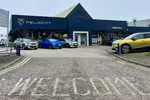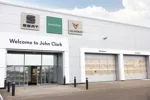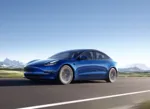There's some interesting research kicking around the Parker's office at the moment. It's to do with car buying and what kind of help people really want. It turns out, that for many – especially those who aren't especially enthusiastic about cars, the sort who see it as family transport – saving time in the car buying process is more important than saving money.
This suggests two things. First, while owning the right car is important to most people, the buying process is no more appealing than buying a washing machine. Second, if money is less important, then maybe that traditional salesman's patter of “it's not how much you pay in total, it's the monthly amount” actually works. So long as they can afford it, most people (when buying on finance at least) don't care.
On the first point, the trade still has work to do. Buying a car should be something we look forward to. If it was, we might be tempted to swap every two years instead of every three. What is it about the process that makes us want to get it over with as soon as possible?
And on the second point, are we in danger of lulling ourselves into a false sense of security? With record new car sales over the last few years, the market for nearly new cars is about to be swamped with stock. But many of the perfect potential customers for these cars might just find themselves locked into long-running, and expensive finance deals that will cost them much more to settle than their older (and recently devalued) car is now worth. These buyers will learn a harsh lesson which might just make the car buying process even less appealing than it currently is.
Salesmen can, of course make up some of the difference with stronger part-exchange offers, but that eats into margins and can only be sustained for so long. Something similar happened in the motorcycle market a few years ago where oversupply of cheap European imports left 1,000s of riders saddled with bikes on high-percentage finance deals that were suddenly worth much less than they still owed.
The market looked strong for a while because new buyers were coming into the market to buy new bikes that they couldn't have afforded before. But it didn't take long for supply to exceed demand and those poor guys who couldn't afford to change were the shot-in-the-arm that the dealers weren't getting.
And these were passionate customers who found the buying process very appealing indeed. It took around four years to settle down. The car market might take even longer.















Login to comment
Comments
No comments have been made yet.